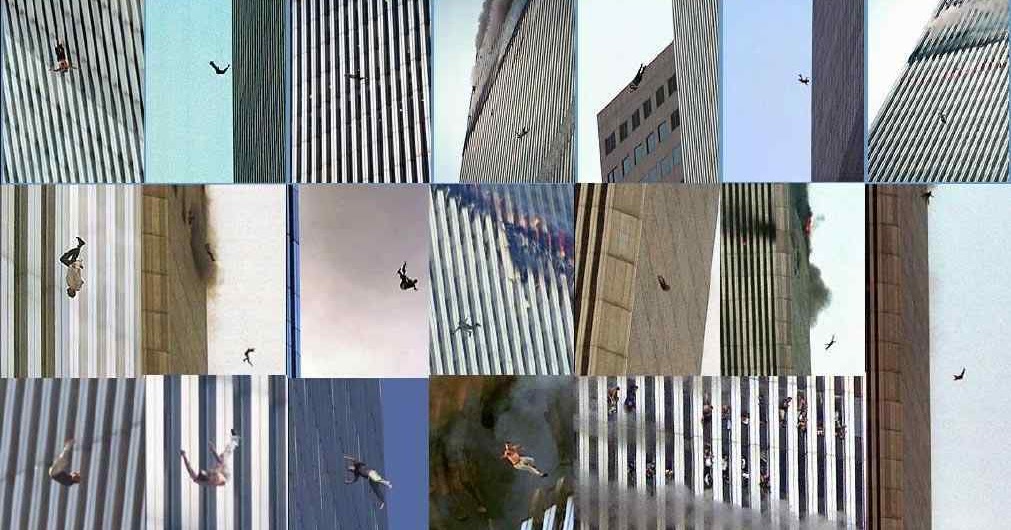The events of September 11, 2001, will forever remain etched in the annals of history, representing a day filled with unimaginable horror and loss. When the Twin Towers were struck by hijacked planes, they became the epicenter of chaos, forcing those trapped inside to face harrowing decisions. In the moments before the towers fell, many faced a desperate choice: to remain inside or to leap from the towering heights in search of freedom from the flames and smoke. This article delves into the heart-wrenching reasons behind why people jumped from the World Trade Centre, exploring the psychological and physical factors that influenced their decisions.
The World Trade Centre, once a symbol of economic power and international cooperation, transformed into a site of tragedy. As the world watched in disbelief, the stories of those who found themselves in the towers began to emerge. Each jump represented a personal story of despair, courage, and the instinct for survival. This exploration aims to shed light on the circumstances that led to these tragic choices, offering insight into a moment that changed the world forever.
As we navigate through this sensitive topic, it is crucial to approach it with empathy and understanding. The people who made the choice to jump were not simply statistics; they were individuals with families, dreams, and lives that were abruptly interrupted. Through examining various perspectives, we can begin to comprehend the complex emotions and dire situations that led to such heartbreaking decisions.
Who Were the Victims of the World Trade Centre Jumpers?
The victims of the World Trade Centre were diverse, encompassing individuals from various backgrounds, ethnicities, and professions. On that fateful day, many of them were simply going about their daily routines, unaware that their lives were about to be irrevocably altered. Some were office workers, while others were tourists or first responders. Each person had a unique story, and their experiences provide insight into the broader human tragedy that unfolded.
What Were the Circumstances Leading to the Jumps?
The circumstances surrounding the jumps from the World Trade Centre were dire. As the towers burned, thick smoke filled the air, and fire engulfed the floors above. Many individuals found themselves trapped, unable to escape due to the chaos and destruction that surrounded them. Common reasons that led to the decision to jump included:
- Increasing heat and smoke
- Lack of escape routes
- Desperation and fear of suffering
- Witnessing the deaths of others
Why Did People Choose to Jump Instead of Staying Inside?
For many trapped in the towers, the decision to jump came from a place of desperation. The overwhelming fear of burning alive or suffocating from smoke inhalation made the prospect of jumping appear as a viable alternative. The psychological state of those inside played a significant role in this decision-making process. People often resort to instinctual responses in life-threatening situations, and for many, the instinct to escape was overwhelming.
How Did the Media Portray the Jumps?
The media coverage of the events of September 11 was extensive and often graphic, capturing the tragedy in real time. Images of people jumping from the towers became emblematic of the despair and horror of that day. This portrayal raised numerous ethical questions about the responsibility of the media to respect the dignity of the victims while reporting on such a catastrophic event. The focus on the jumps also shifted the narrative towards the human aspect of the tragedy, highlighting the profound impact on families and communities.
What Can We Learn from the Choices Made on That Day?
The choices made by those who jumped from the World Trade Centre serve as a poignant reminder of the fragility of life. They encourage us to reflect on the importance of compassion, empathy, and understanding in times of crisis. This tragic event prompted discussions on mental health, emergency preparedness, and the human instinct for survival. It also serves as a catalyst for conversations about how we can better support individuals facing overwhelming circumstances.
How Has This Event Shaped Our Understanding of Tragedy?
The events of September 11, and the choices made by those who found themselves in the Twin Towers, have fundamentally shaped our understanding of tragedy. They remind us of the complexities of human emotion and the lengths to which individuals will go to seek escape from suffering. This tragic day has prompted ongoing dialogues about resilience, loss, and the human condition in the face of unimaginable adversity.
What Are the Long-Term Effects of the September 11 Attacks on Society?
The long-term effects of the September 11 attacks extend far beyond that day. The aftermath has influenced global politics, security measures, and societal attitudes. The collective trauma experienced by those who witnessed the events, as well as the families of victims, has led to increased awareness of mental health issues and the importance of support systems. As we remember the lives lost, we also recognize the need for healing and understanding in a world that continues to grapple with the repercussions of that tragic day.


